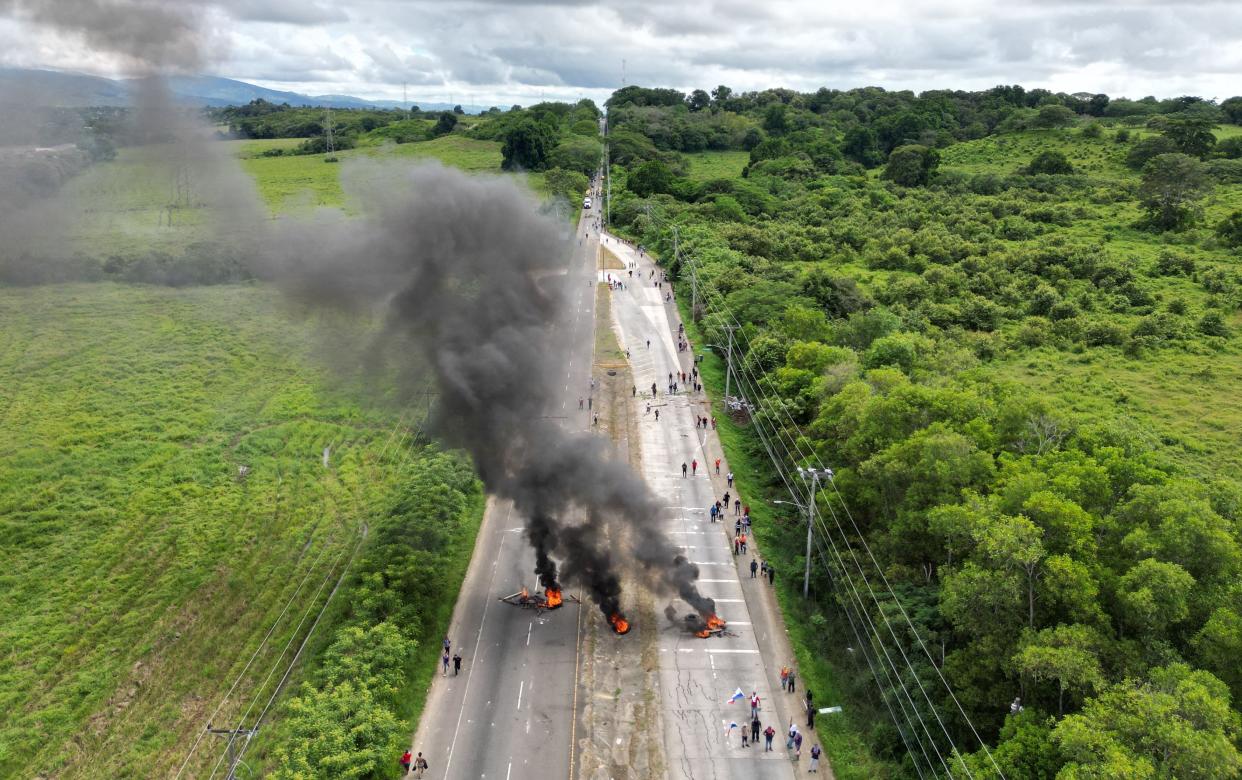First Quantum Plunges Up to 31% as Panama Mine Faces Referendum

(Bloomberg) -- First Quantum Minerals Ltd. shares plunged the most in 26 years after Panama’s government said it would hold a referendum on the company’s flagship copper mine in an effort to quell mass civil unrest.
Most Read from Bloomberg
Innovent, Lilly Obesity Drug Spurs More Weight Loss in Trial
Israel Latest: Deadly Strike Hits Refugee Camp as Army Advances
Israel Latest: Netanyahu Vows to Stay On; Targets Hit in Lebanon
Shares of the Canadian miner, which owns and operates the Cobre Panama mine in the Central American nation, fell almost 31% in Toronto trading for the biggest intraday decline since July 1997. Franco-Nevada Corp., which owns a royalty on the copper produced from the mine, dropped as much as 10%.
Cobre Panama, one of the world’s biggest and newest copper mines, has become a political flashpoint for the nation. A new contract awarding a 20-year extension to First Quantum’s mining license was signed into law by Panamanian President Laurentino Cortizo earlier in October, sparking fury in the country and leading protesters to block highways and clash with police. Seeking to appease opponents of the mine, Cortizo said on Sunday that a national vote will be held Dec. 17 on whether to revoke the license.
The latest uncertainty over the mine comes as the future supply of copper has become a hot topic among global policymakers and business executives. The long-term supply of the metal is constrained, with demand forecast to surge as the global economy decarbonizes.
Read More: Panama Bans New Metal Mining Projects Amid Widespread Unrest
First Quantum shares were down 25% at 1:24 p.m. in Toronto to C$20.90, the lowest since September 2022.
First Quantum declined to comment on the developments or its share decline. Toronto-based Franco Nevada didn’t immediately respond to a request for comment.
First Quantum spent years and billions of dollars building Cobre Panama and has caught the attention of rivals also looking to grow their exposure to the widely used industrial metal. The Vancouver-based miner has already faced multiple hurdles for the flagship mine, including being forced to halt copper processing earlier in the year due to a tax dispute with the government.
The mine is First Quantum’s biggest asset, with National Bank of Canada analyst Shane Nagle estimating that the operation would account for nearly half of the company’s projected revenue next year.
“As the contract has already been ratified into law, there is likely a complicated legal pathway forward to impose any major revisions,” Nagle wrote in a Monday note. “We understand the previous mining contract would remain in effect and First Quantum would likely have to negotiate a new contract with incoming administration following next spring’s presidential elections.”
The project is integral to Panama’s economy and accounts for about 4% of its gross domestic product, according to Nagle.
Many Panamanians say the revised operating contract is overly generous to the Canadian metals producer and violates the nation’s sovereignty over its mineral resources. The contract gives First Quantum the right to produce copper at its site for 20 years, with the option to extend that for a further 20 years after that.
Panama’s Supreme Court has also said it will consider two lawsuits filed against the renewed contract with the company.
Panama’s dollar bonds fell on Monday, leading losses in emerging markets. Notes due 2036, some of the country’s more liquid, slumped about 1.8 cents on mounting speculation that the Central American nation is heading for a downgrade.
Fitch Ratings assigned a negative outlook on the debt in late September citing fiscal pressures — from subsidies to costlier debt service — and uncertainty over the government’s ability to address the issues. The debate around the First Quantum mine and a massive drought that forced the government to cut traffic through the Panama Canal have further fanned worries.
--With assistance from Ezra Fieser.
Most Read from Bloomberg Businessweek
America’s Culture Wars Have Liberal Parents Opting for Home-Schooling
Hollywood Loves Halloween: Inside the Lucrative Business of Horror Movies
©2023 Bloomberg L.P.



